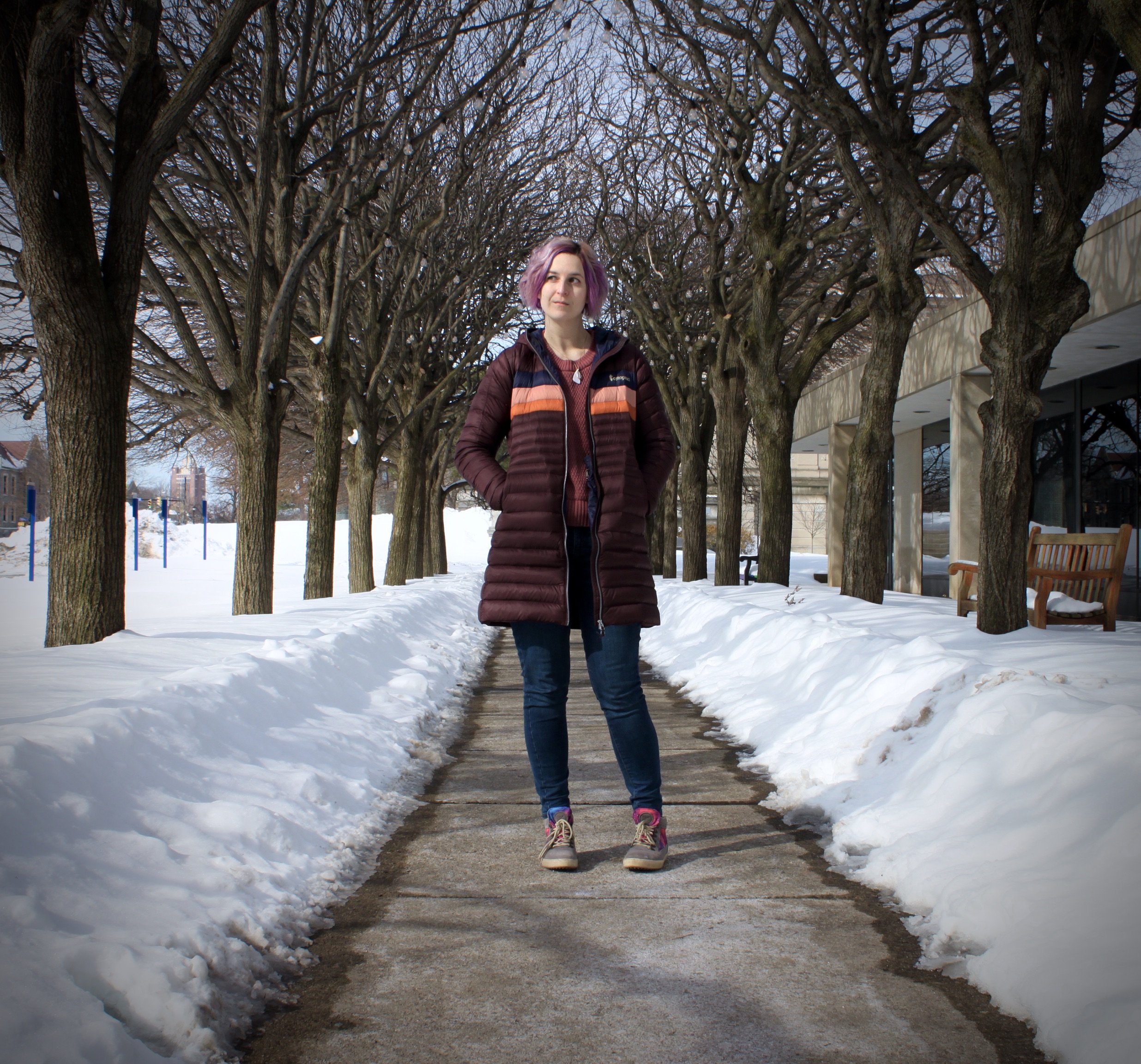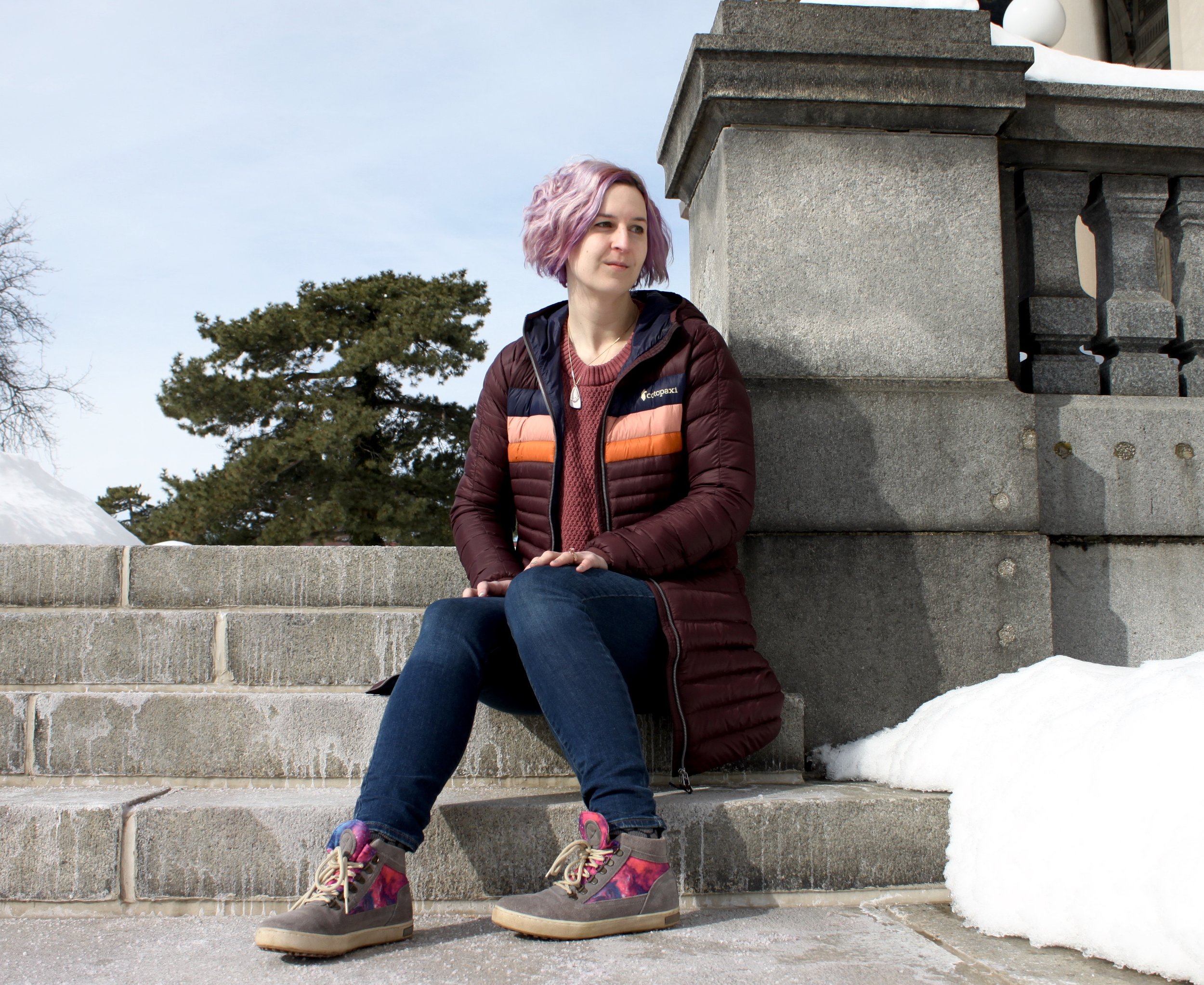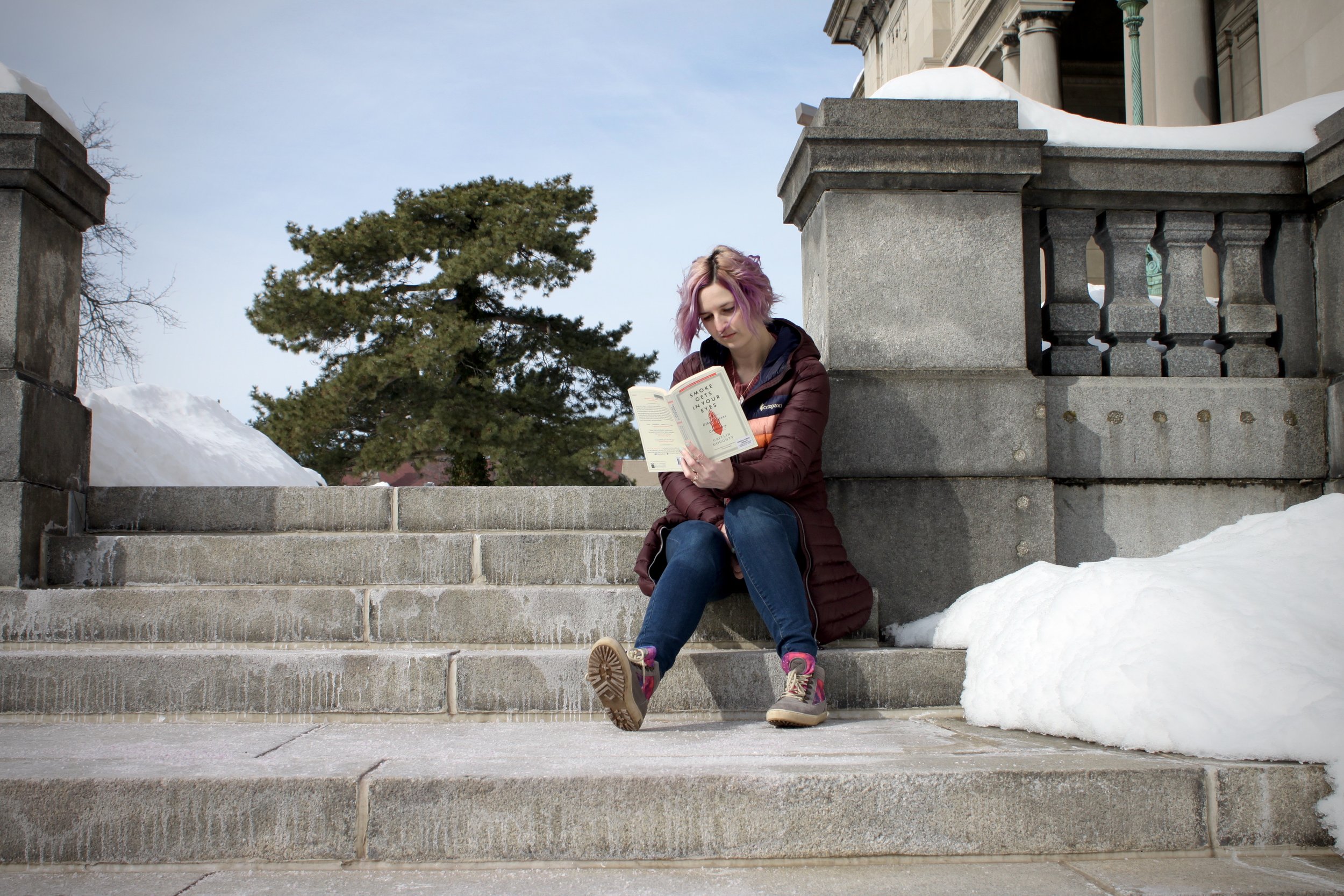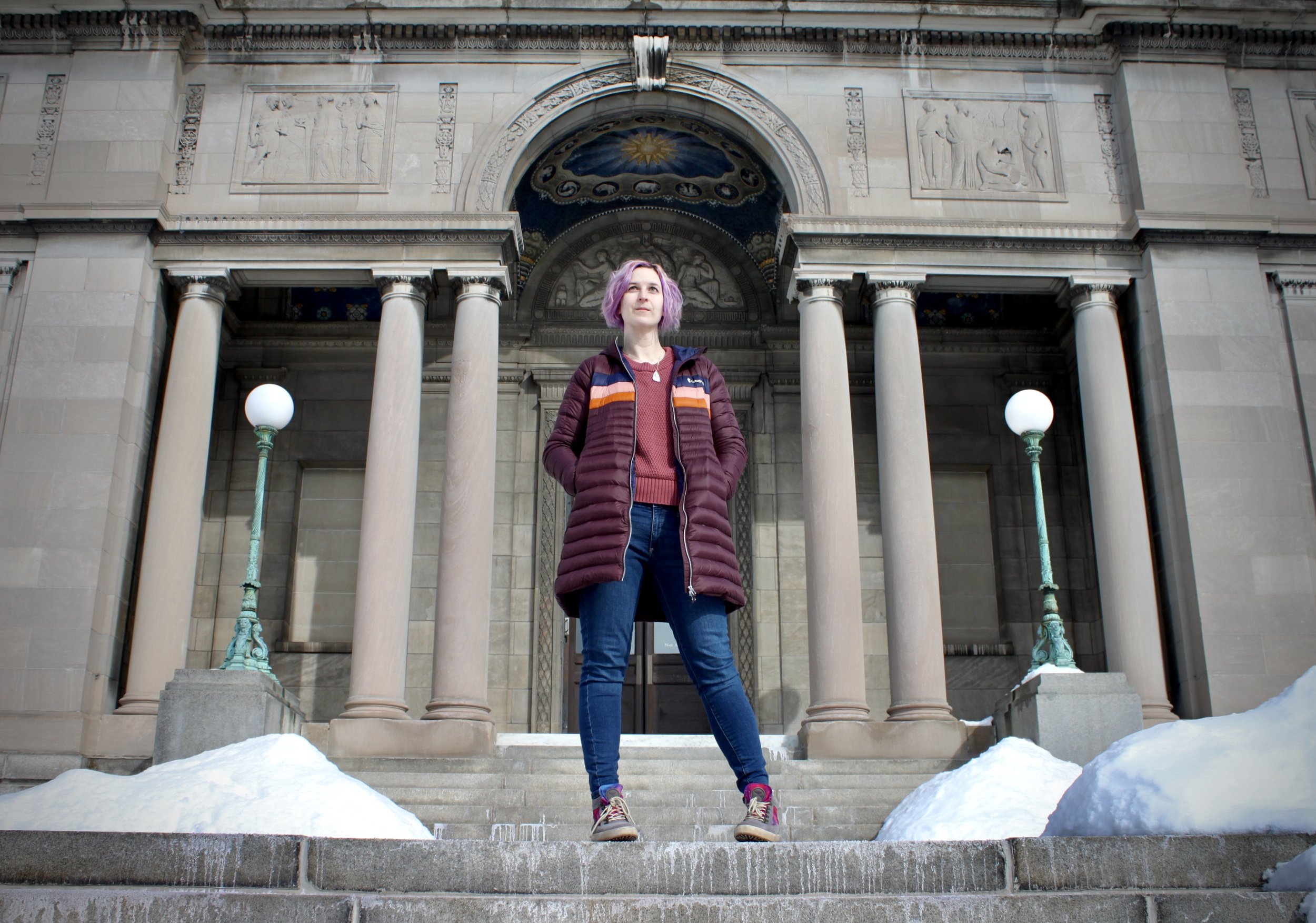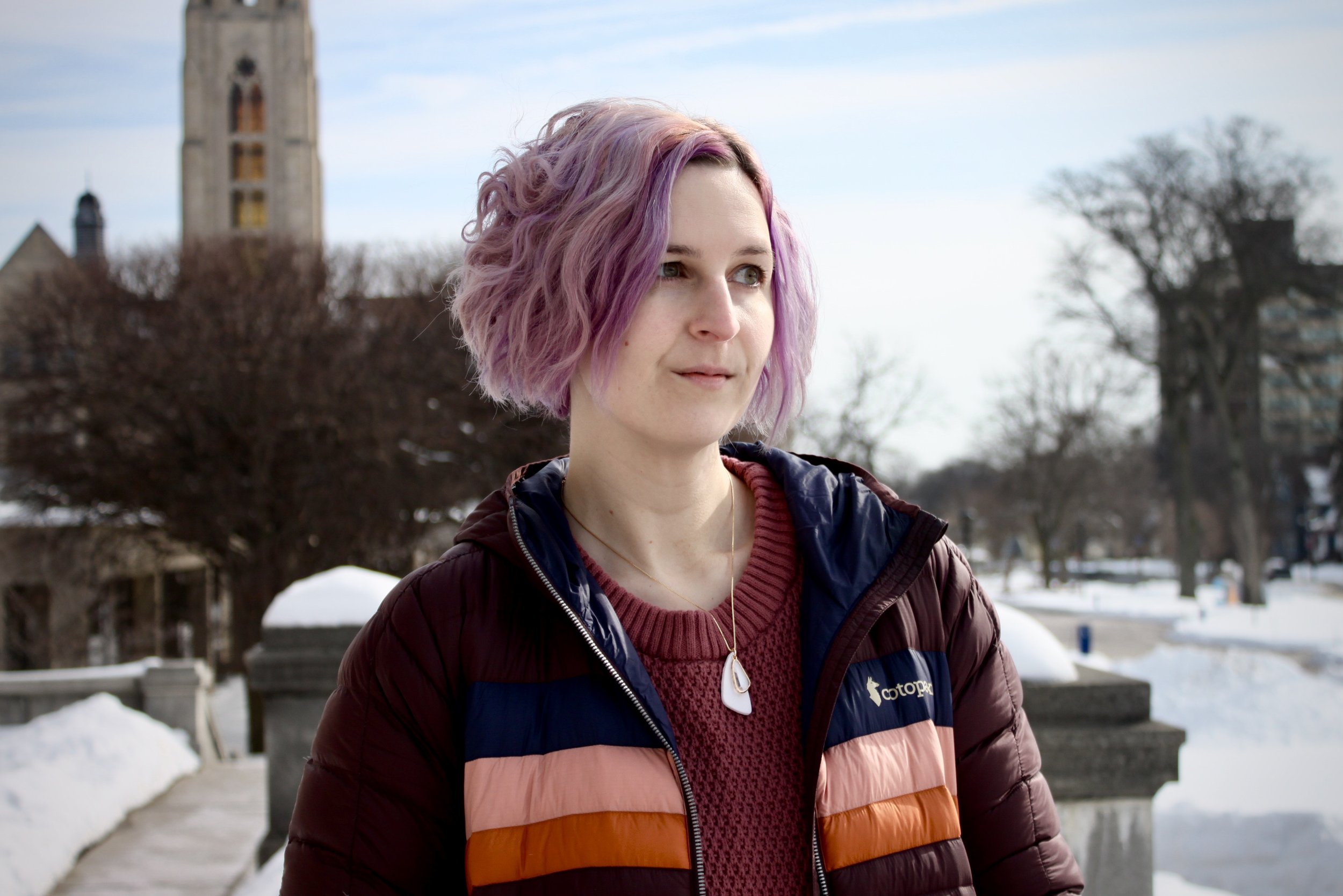Emily Hessney Lynch
“There are no ‘wrong’ emotions to feel while grieving. Every human emotion is valid. Anger? Despair? Joy? Anything you are feeling is completely okay. You don’t need to mask your true emotions for the benefit of others. Your feelings are your own and they are valid.”
NAMI: Have you ever had any mental health struggles? Do you live with a diagnosis? What has your experience been?
EHL: When I was younger, I was an overthinker, but believed I outgrew it by college. Turns out I was only pretending I was fine! I started therapy in 2018 and learned that I had anxiety, and not everyone was this anxious all the time.
Last October, I was diagnosed with ADHD. I misguidedly believed the stereotypes about ADHD and thought it meant you were hyper and disorganized. I’ve learned so much since then. For me, my ADHD presents as hyperfixation, racing thoughts and anxiety, Rejection Sensitive Dysphoria (a severe sensitivity to criticism), impulsivity, struggles with decision making, and issues with emotional regulation.
NAMI: In what ways is it helpful to be self-employed as someone living with ADHD? In what ways (if any) is it challenging? How do you cope with those challenges? Did you have traditional 9-5 jobs prior to being self-employed and was that more difficult?
EHL: In retrospect, it makes sense that I pursued self-employment! ADHD people are often highly creative and make great entrepreneurs. I love the flexibility that self-employment offers, from setting my own hours to choosing what kind of work I do.
I worked at a nonprofit with an open office floor plan a few years ago and that was so hard! I couldn’t concentrate as I was constantly interrupted and distracted. I’ve found structure helpful in past 9-5 jobs. When I worked at U of R, I shared an office with a coworker and they served as a body double, helping me focus when I really needed to get things done.
NAMI: What tools help you manage your ADHD?
EHL: Medication has been a game changer. My therapist is a LCSW so she couldn’t prescribe meds, but my PCP was able to help. I started on a low dose and we monitored it, then upped the dose a bit. There is some notion that people with ADHD can just ‘push through’--but that’s misguided. Our brains work differently than neurotypical folks and it’s not a matter of effort. Knowing that I have ADHD and being able to identify when it’s a factor is a big help. Instead of saying, “What’s wrong with me?” I can pause and think “that’s just an ADHD symptom, it’s not me.”
NAMI: You’ve written about the loss of your mother and that grief is different for everyone. What has your experience of grief been like?
EHL: In 2021, my mom and grandma died 5 weeks apart. My mom had cancer and my grandma was 93, so neither was a surprise. And yet, neither one acknowledged that their death was coming. Our culture lives in denial of death, terrified and refusing to speak about it (I recommend reading Caitlin Doughty’s Smoke Gets in Your Eyes & Other Lessons from the Crematory, which has shaped my thinking about how our society fails to grapple with mortality).
Beyond that, everyone has a different relationship with the deceased. Everyone is grieving a different version of that person. I had done a lot of grieving before death came, so I was in a different place than the rest of my family.
My therapist reminded me: “People die the way they live.” Movies lead us to expect a death that is beautiful and meaningful. But that’s not always the case. Sometimes it’s just shitty and hard.
There’s a concept called ‘disenfranchised grief’--it’s when your grief is not seen as legitimate by society. You could be grieving the loss of a friend, the relationship you wish you could’ve had if the person had been different, or the life you were living before a pandemic changed everything. It can be isolating to experience a grief like this, but your grief is completely valid, and you are not alone.
NAMI: What’s something grief has taught you? What advice would you give someone in the throes of grief?
EHL: There’s an impulse to say our grief, or even our trauma, taught us a valuable lesson. But grief and trauma suck. No one wants to go through it. They may not teach us anything, they may just be extremely painful That being said, I’ve learned:
Grief deserves to be witnessed. You’re not helping anyone by burying your grief and locking it away. It’s not being strong; you’re hurting yourself by not processing it and feeling it fully.
There are no ‘wrong’ emotions to feel while grieving. Every human emotion is valid. Anger? Despair? Joy? Anything you are feeling is completely okay. You don’t need to mask your true emotions for the benefit of others. Your feelings are your own and they are valid.
NAMI: Do you feel like you've had good supports throughout your grief (therapy, support groups, etc.)?
EHL: Therapy has been incredibly beneficial; I know it’s a privilege to be able to go to therapy regularly and I wish it was more accessible for all. I also deeply appreciate my husband and my closest friends, who I can talk with honestly and unfiltered, without fear of judgment. I’m a writer too, and processing through writing and sharing my work has been healing. Additionally, TikTok has proved a great space for conversations about mental health. Hearing other people’s stories and sharing mine have helped me feel less alone.
NAMI: Do you think stigma is being dismantled locally? If so, what is an indication of that?
EHL: I think so! Conversations about mental health and therapy on social media (and in pop culture) are part of what made me feel comfortable finally reaching out to get help a few years ago. I’ve made close friends through social media who I have great conversations with about our mental health journeys. Organizations like NAMI are doing an amazing job sharing people’s stories and showing that it is normal and necessary to talk about our mental health!

